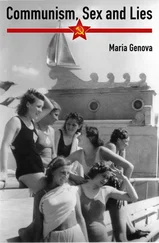SEPTEMBER 2004
Although it was officially the beginning of fall semester at Harvard, the weather was steadfastly adhering to the rules according to the Roman calendar. It was a sticky eighty degrees that summer morning in September as Alice began her commute to Harvard Yard. In the days just before and following matriculation each year, it always amused her to see the first-year students who weren't from New England. Fall in Cambridge evoked images of vibrant leaves, apple picking, football games, and wool sweaters with scarves. While it wouldn't be unusual to wake up on a late September morning in Cambridge to find frost on the pumpkin, the days, especially in early September, were still filled with the sounds of window air conditioners tirelessly groaning and fevered, pathologically optimistic discussions about the Red Sox. Yet each year there they were, these newly transplanted students, moving with the uncertainty of unseasoned tourists along the sidewalks of Harvard Square, always burdened by too many layers of wool and fleece and an excess of shopping bags from the Harvard Coop packed with all the necessary desk gear and sweatshirts bearing the HARVARD brand. The poor sweaty things.
Even in her sleeveless white cotton T-shirt and ankle-length black rayon skirt, Alice felt uncomfortably damp by the time she reached Eric Wellman's office. Directly above hers, his was the same size, with the same furniture and the same view of the Charles River and Boston, but somehow his seemed more impressive and imposing. She always felt like a student whenever she was in his office, and that feeling hovered especially present today, as she'd been called in by him "to talk for a minute."
"How was your summer?" asked Eric.
"Very relaxing. How was yours?"
"Good, it went by too fast. We all missed seeing you at the conference in June."
"I know, I missed being there."
"Well, Alice, I wanted to talk with you about your course evaluations from last semester before classes begin."
"Oh, I haven't even had a chance to look at them yet."
An elastic-bound stack of evaluations from her motivation and emotion course sat somewhere in her office, unopened. Harvard's student evaluation responses were entirely anonymous and seen only by the instructor of the course and the chair of the department. In the past, she'd read them purely as a vanity check. She knew she was a great teacher, and her students' evaluations had always nodded in unwavering agreement. But Eric had never asked her to review them with him. She feared, for the very first time in her career, that she wouldn't like the image of herself she saw reflected in them.
"Here, take a few minutes and look them over now."
He handed her his copy of the stack with the summary page on top.
On a scale from one, disagree strongly, to five, agree strongly: The instructor held students to a high standard of performance. All fours and fives.
Class meetings enhanced an understanding of the material. Fours, threes, and twos.
The instructor helped me to understand difficult concepts and complex ideas. Again, fours, threes, and twos.
The instructor encouraged questions and the consideration of differing viewpoints. Two students gave her ones.
On a one-to-five scale from poor to excellent, give an overall evaluation of the instructor. Mostly threes. If she remembered correctly, she'd never received lower than a four in this category.
The entire summary page was splattered with threes, twos, and ones. She didn't try to convince herself that it represented anything but the accurate and thoughtful judgment of her students, without malice. Her teaching performance had outwardly suffered more than she'd been aware of. Still, she'd be willing to bet anything that she was far from the worst-rated teacher in the department. She might be sinking fast, but she was nowhere near the bottom of the barrel.
She looked up at Eric, ready to face the music, maybe not her favorite tune but probably not wholly unpleasant.
"If I hadn't seen your name on that summary, I wouldn't have thought anything of it. It's decent, not what I've ever seen attached to you, but not horrible. It's the written comments that are particularly worrisome, and I thought we should talk."
Alice hadn't looked beyond the summary page. He referred to his notes and read aloud.
"'She skips over huge sections of the outline, so you skip it, too, but then she expects us to know it for the exam.'
"'She doesn't seem to know the information she's teaching.'
"'Class was a waste of time. I could've just read the textbook.'
"'I had a hard time following her lectures. Even she gets lost in them. This class was nowhere near as good as her intro course.'
"'Once she came to class and didn't teach. She just sat down for a few minutes and left. Another time, she taught the exact same lecture she did the week before. I'd never dream of wasting Dr. Howland's time, but I don't think she should waste mine either.'"
That was tough to hear. It was much, much more than she'd been aware of.
"Alice, we've known each other a long time, right?"
"Yes."
"I'm going to risk being blunt and too personal here. Is everything okay at home?"
"Yes."
"How about you then, is it possible that you're overstressed or depressed?"
"No, that's not it."
"This is a little embarrassing to have to ask, but do you think you might have a drinking or substance problem?"
Now she'd heard enough. I can't live with a reputation of being a depressed, stressed-out addict. Having dementia has to carry less of a stigma than that.
"Eric, I have Alzheimer's disease."
His face went blank. He had been braced to hear about John's infidelity. He was ready with the name of a good psychiatrist. He was prepared to orchestrate an intervention or to have her admitted to McLean Hospital to dry out. He was not prepared for this.
"I was diagnosed in January. I had a hard time teaching last semester, but I didn't realize how much it showed."
"I'm sorry, Alice."
"Me, too."
"I wasn't expecting this."
"Neither was I."
"I was expecting something temporary, something you would get past. This isn't a temporary problem we're looking at."
"No, no, it's not."
Alice watched him think. He was like a father to everyone in the department, protective and generous, but also pragmatic and strict.
"Parents are paying forty grand a year now. This wouldn't go over well with them."
No, it certainly wouldn't. They weren't shelling out astronomical dollars to have their sons and daughters learn from someone with Alzheimer's. She could already hear the uproar, the scandalous sound bites on the evening news.
"Also, a couple of students from your class are contesting their grades. I'm afraid that would only escalate."
In twenty-five years of teaching, no one had ever contested a grade given by her. Not a single student.
"I think you probably shouldn't be teaching anymore, but I'd like to respect your time line. Do you have a plan?"
"I'd hoped to stay on for the year and then take my sabbatical, but I hadn't appreciated the extent to which my symptoms were showing and disrupting my lectures. I don't want to be a bad teacher, Eric. That's not who I am."
"I know it's not. How about a medical leave that would take you into your sabbatical year?"
He wanted her out now. She had an exemplary body of work and performance history, and most important, she had tenure. Legally, they couldn't fire her. But that was not how she wanted to handle this. As much as she didn't want to give up her career at Harvard, her fight was with Alzheimer's disease, not with Eric or Harvard University.
Читать дальше












